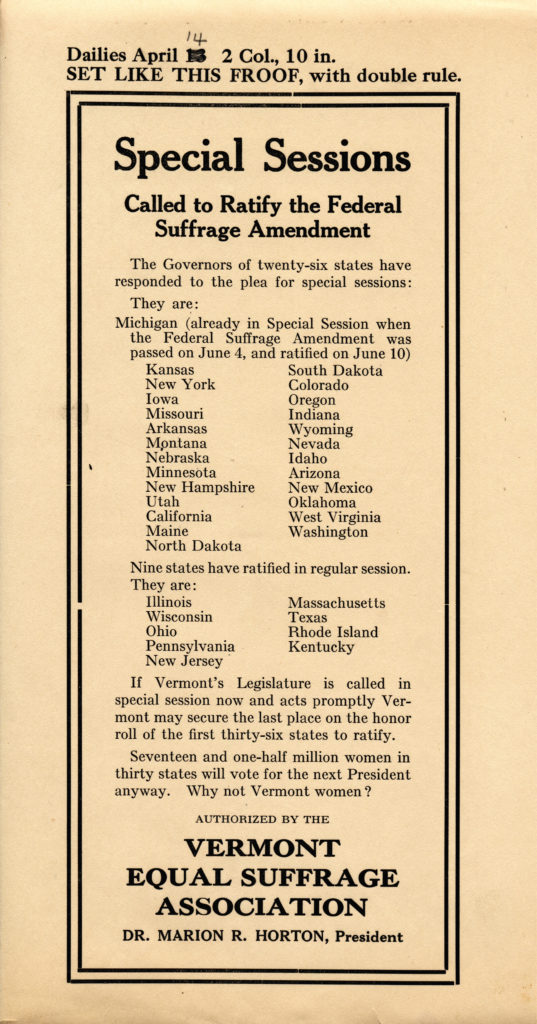Section I The right of citizens of the United States to vote shall not be denied or abridged by the United States or by any State on account of sex.
Section 2 The Congress shall have power to enforce this article by appropriate legislation.
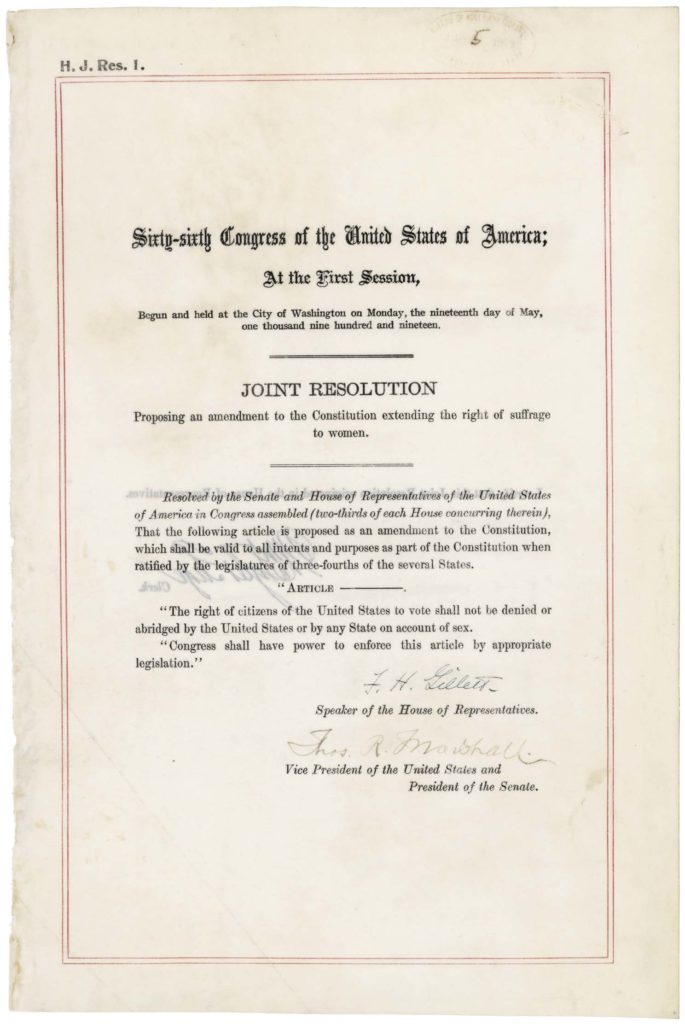
Ratification of the 19th Amendment
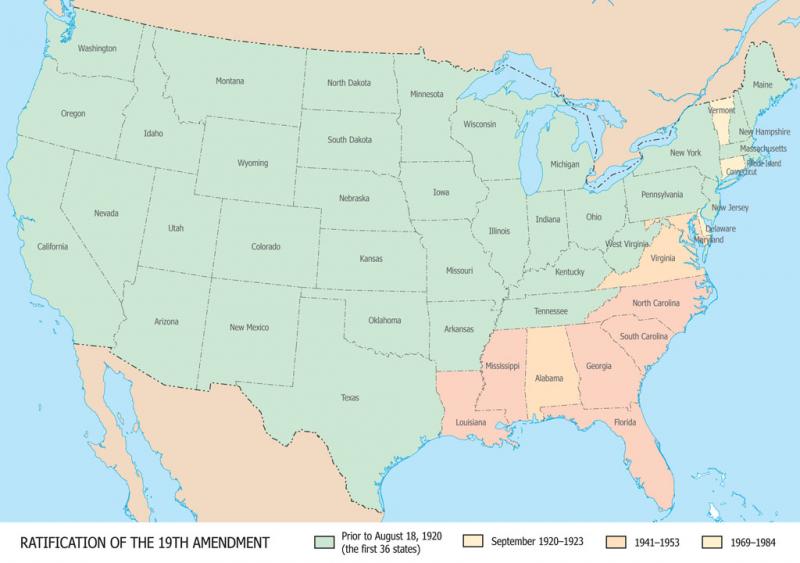
LEARN NC. “Ratification of the 19th amendment.” In ANCHOR, A North Carolina History Online Resource. Licensed under CC BY-NC-SA 4.0.
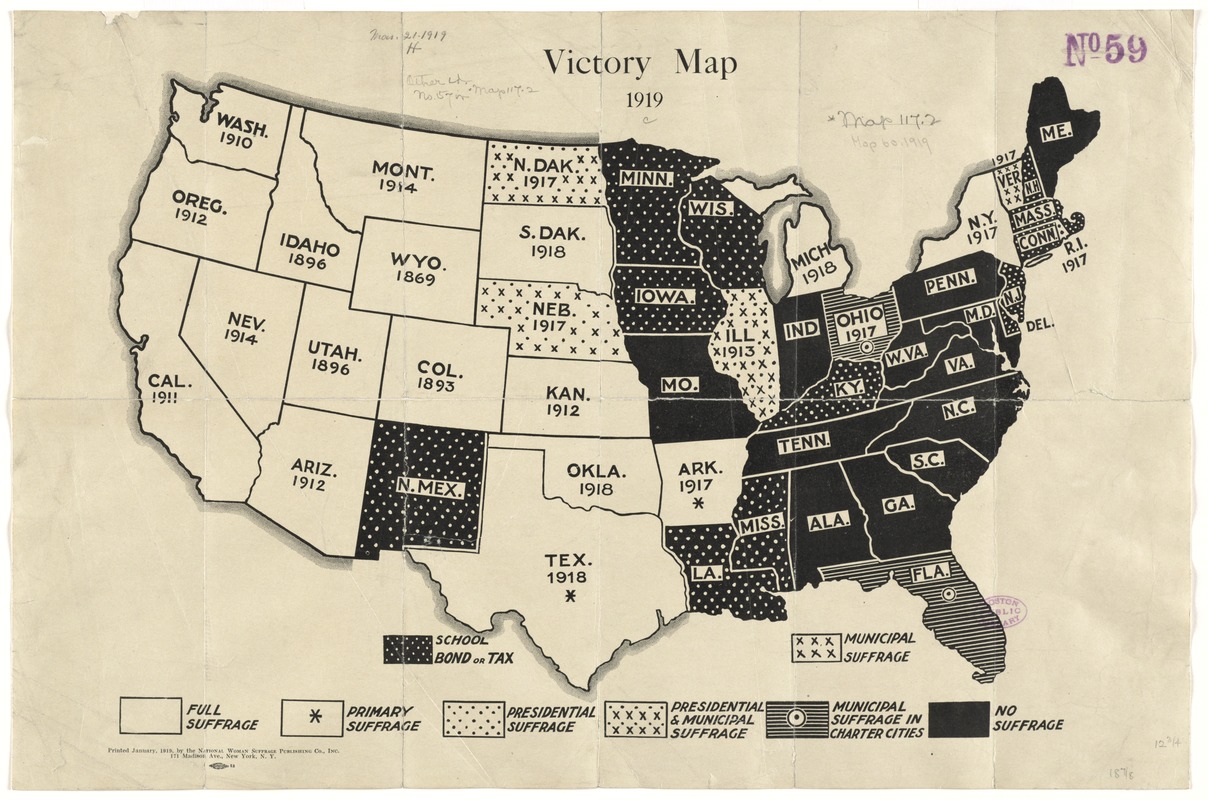
Map reproduction courtesy of the Norman B. Leventhal Map & Education Center at the Boston Public Library.
The 19th Amendment was first introduced in the U. S. Congress in 1878. By 1916, with only nine states giving voting rights to women, suffragists were getting impatient and began demanding a constitutional amendment to make the vote a national right. On June 4, 1919, as more representatives supported suffrage, Congress passed the 19th Amendment but, for it to become part of the U. S. Constitution, two-thirds (36) of the states had to vote in favor of ratification.
As most state legislatures had adjourned, governors would have to convene special sessions to approve ratification that would enable women to vote for the very first time in the November 1920 presidential election. With determination and drive, suffragists won state after state, and by March 1920, 35 states had approved the amendment, with one more state to cast the deciding vote and none willing to step forward.
Vermont was one of 13 states under pressure to be the 36th state. On April 21, 400 women marched to Montpelier in the pouring rain to demand that Governor Percival Clement (R) call a special legislative “ratification” session to make Vermont the “Victory State.” “Make Vermont the Perfect 36” was the slogan. Additionally, women across the state sent the governor more than 1,600 telegrams and letters calling for the special session. To no avail, as Governor Clement was an opponent of woman suffrage and remained unshakeable, arguing that Vermont could not afford the expense of calling a special session. As a result Vermont lost the opportunity to become the “Victory State.”
On August 18, 1920, in a nail-biter vote, Tennessee became the 36th state to ratify the 19th Amendment. The struggle for suffrage in Tennessee was known as the War of the Roses with supporters of the amendment wearing yellow roses and opponents wearing red roses. Twenty-four-year-old Representative Harry Thomas Burn (R), sporting a red rose on his lapel, unexpectedly changed his mind and cast the decisive vote aye in favor of ratification. In his suit pocket was a letter from his mother asking him to be “a good boy and help Mrs. Thomas Catt with her ‘Rats.’ Is she the one that put rat in ratification, Ha! No more from mama this time. With lots of love, Mama,”
The Certificate of Ratification was sent by train from Tennessee to Washington, D.C. On August 26th, at 8 a.m., without ceremony, U.S. Secretary of State Bainbridge Colby certified the official document at his home in Washington, capping a momentous victory for women fighting for the right to vote.
Since then, all states have ratified the 19th Amendment. Connecticut (September 1920) Vermont (1921), Delaware (1923), Maryland (1941), Virginia (1952), Florida and South Carolina (1969), Georgia and Louisiana (1970), and North Carolina (1971). In 1984, Mississippi became the last state to ratify the 19th Amendment.
Click here for further reading on the 19th Amendment by State
Harry T. Burn (R-Tenn)
Twenty-four-year-old Representative Harry Thomas Burn (R) from Niota (McMinn County) was the youngest member of the Legislature. In his first term, torn between the suffragists and anti-suffragists, he is remembered for casting the historic deciding vote to ratify the 19th Amendment when voting against party lines and beliefs of many of his constituents, he changed his nay vote to aye.
I knew that a mother’s advice is always safest for a boy to follow and my mother wanted me to vote for ratification.
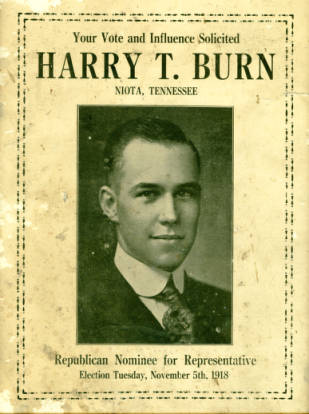
Harry T. Burn Papers
Repository
C.M. McClung Historical Collection, Knox County Public Library
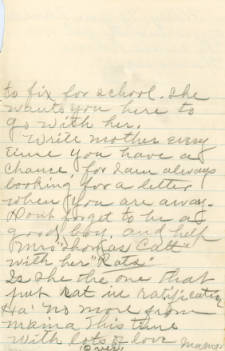
Page 6, August 17, 1920
Harry T. Burn Papers
Repository
C.M. McClung Historical Collection, Knox County Public Library
Further reading
“Don’t forget to be a Good Boy”: Harry T. Burn’s letter from Mom and the Ratification of the 19th Amendment in Tennessee

